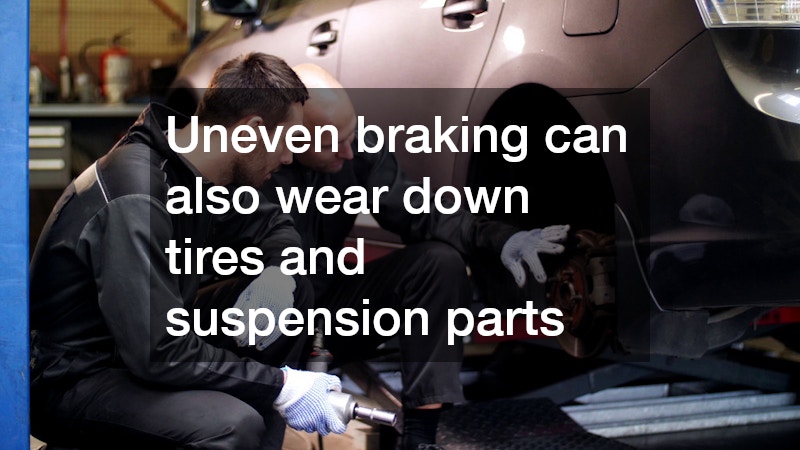Your vehicle’s braking system is one of the most important components when it comes to safety. Whether you’re commuting through heavy traffic or taking a weekend road trip, knowing when your brakes need attention can prevent accidents and costly damage.
In this guide, we’ll cover the essentials of brake repair, focusing on the warning signs that suggest it’s time for new brakes. Recognizing these symptoms early and acting promptly can save you money and, more importantly, keep you and your passengers safe.
Squealing or Grinding Means Trouble
One of the most common indicators that you need brake repair is unusual noises when you apply the brakes. If you hear a high-pitched squealing sound, it could be the brake wear indicator—a small metal piece that rubs against the rotor when the brake pads are too thin. This sound is your early warning system letting you know it’s time for service.
On the other hand, grinding noises are usually more serious. Grinding typically indicates that the brake pads are completely worn down, and the metal components of the caliper are coming into direct contact with the rotor. At this point, a simple pad replacement may not be enough—you may also need new rotors or other hardware, increasing the cost of the brake repair significantly. Ignoring these noises can lead to severe damage and decreased stopping power, putting everyone on the road at risk.
A Shaky Steering Wheel
If your steering wheel vibrates when you apply the brakes, it may be due to warped brake rotors. This often occurs from overheating or excessive stress on the brake system, such as from frequent sudden stops or descending long hills. The uneven surface of the rotor causes the brake pads to grip inconsistently, resulting in noticeable vibration.
This symptom not only affects the comfort of your drive but also the effectiveness of your braking. Warped rotors reduce stopping efficiency and may compromise the overall performance of your vehicle. At this stage, brake repair will usually involve resurfacing or replacing the rotors along with the brake pads. Getting it checked out early can help you avoid more expensive fixes down the road.
Spongy Pedal: A Major Red Flag
A brake pedal that feels soft, spongy, or sinks to the floor when pressed is a serious warning sign. This issue often points to air in the brake lines, a brake fluid leak, or even a failing master cylinder. Unlike noisy brakes or slight vibrations, a soft pedal can suddenly affect your ability to stop effectively, making this one of the more urgent signs you need brake repair.
Brake fluid is essential to the hydraulic system that enables your car to stop. If there’s a leak or the fluid is contaminated, the system loses pressure and performance. In this case, a mechanic may need to flush the fluid, repair any leaks, or replace worn components. Never ignore this symptom—it can escalate quickly into a hazardous situation on the road.
Don’t Ignore Dashboard Warning Lights
Modern vehicles are equipped with dashboard indicators designed to alert you to problems with your braking system. The brake warning light or ABS (Anti-lock Braking System) light may turn on for a variety of reasons, including low brake fluid, worn brake pads, or sensor issues.
While some lights may be triggered by minor issues, it’s not wise to take any warning lightly. A professional brake repair technician can run diagnostics to determine the exact cause. In some cases, the solution might be as simple as topping off brake fluid; in others, you might need a full system inspection and repair.
Car Pulling When Braking
If your car pulls to the left or right when braking, it could indicate uneven brake pad wear, a stuck caliper, or issues with the brake lines. This not only affects how your car handles but can also increase stopping distance, especially in emergency situations.
Uneven braking can also wear down tires and suspension parts more quickly, leading to further maintenance costs. As part of routine brake repair, mechanics check for proper caliper operation, even pad wear, and system balance to ensure consistent performance.
Understanding the warning signs of brake problems is essential for every driver. From strange noises and vibrations to dashboard lights and soft pedals, these symptoms are your car’s way of saying it’s time for a check-up. Timely brake repair ensures that your vehicle remains safe and reliable on the road.
Don’t wait until a small issue becomes a major repair—or worse, leads to an accident. If you’re experiencing any of the signs mentioned above, schedule a brake repair appointment with a trusted mechanic. A proactive approach to vehicle maintenance not only extends the life of your car but also keeps you and everyone around you safer on the road.



